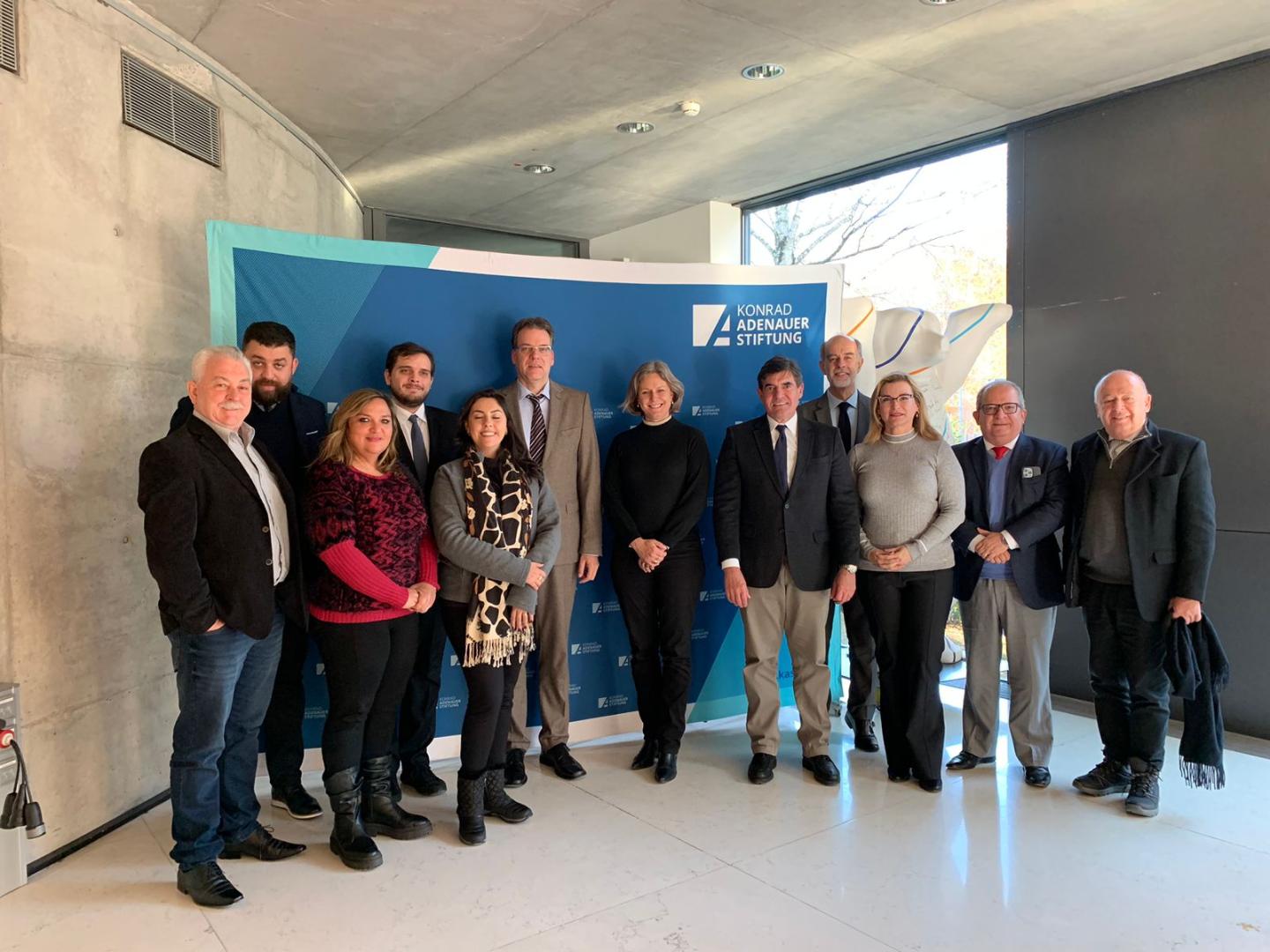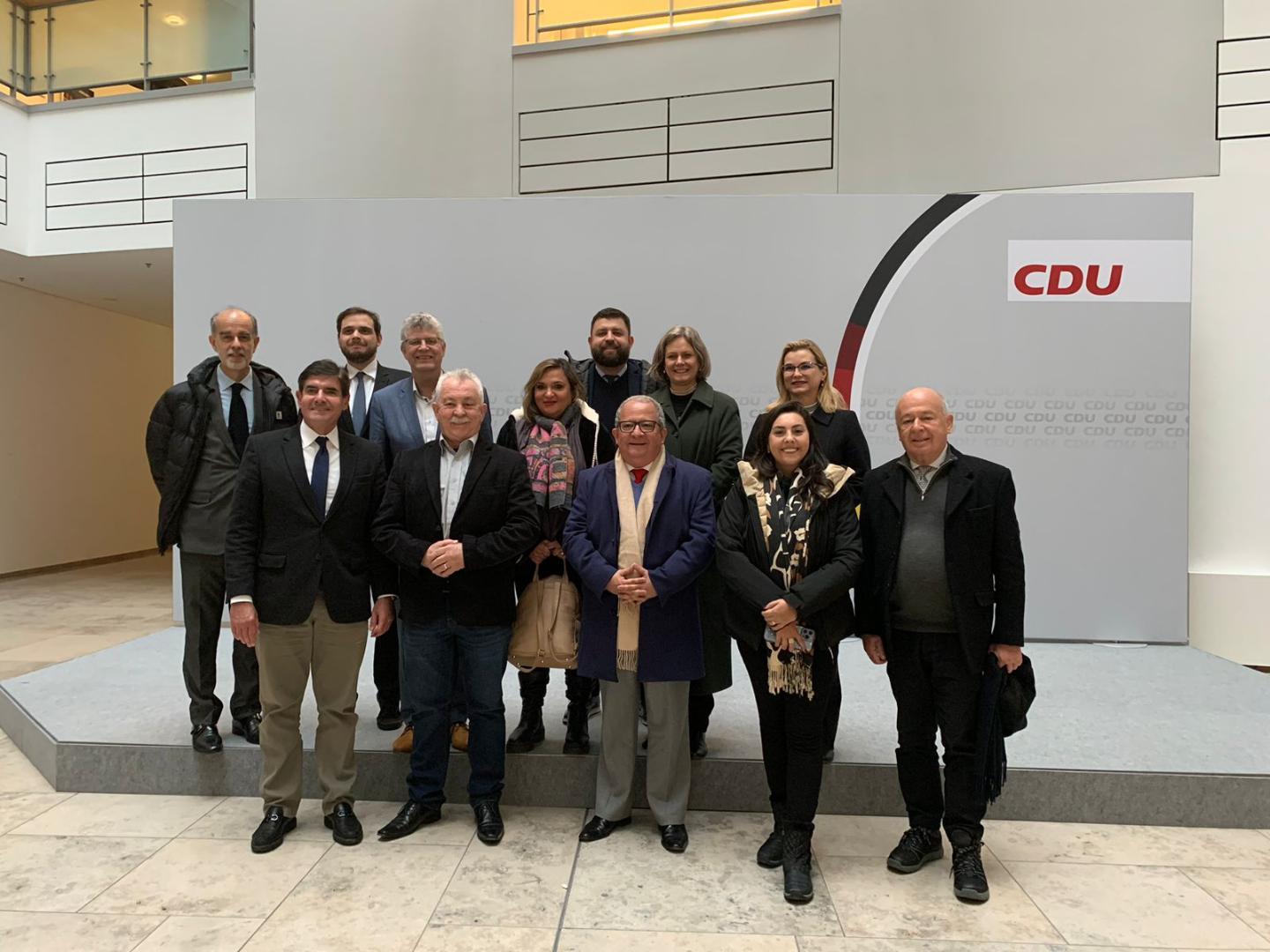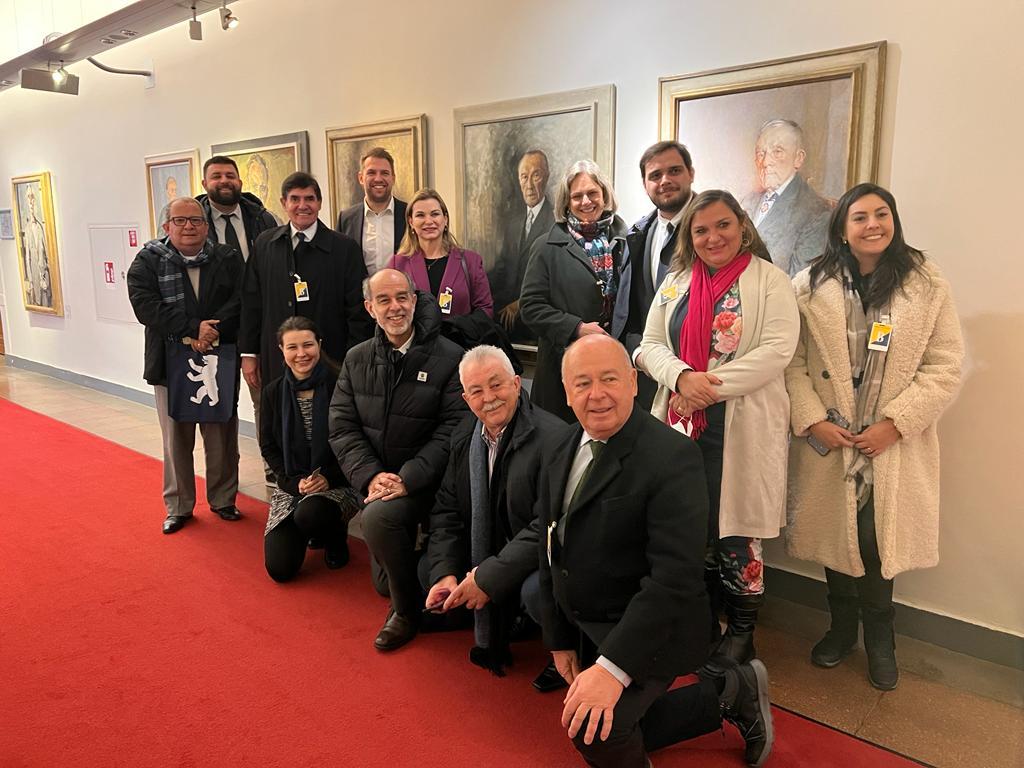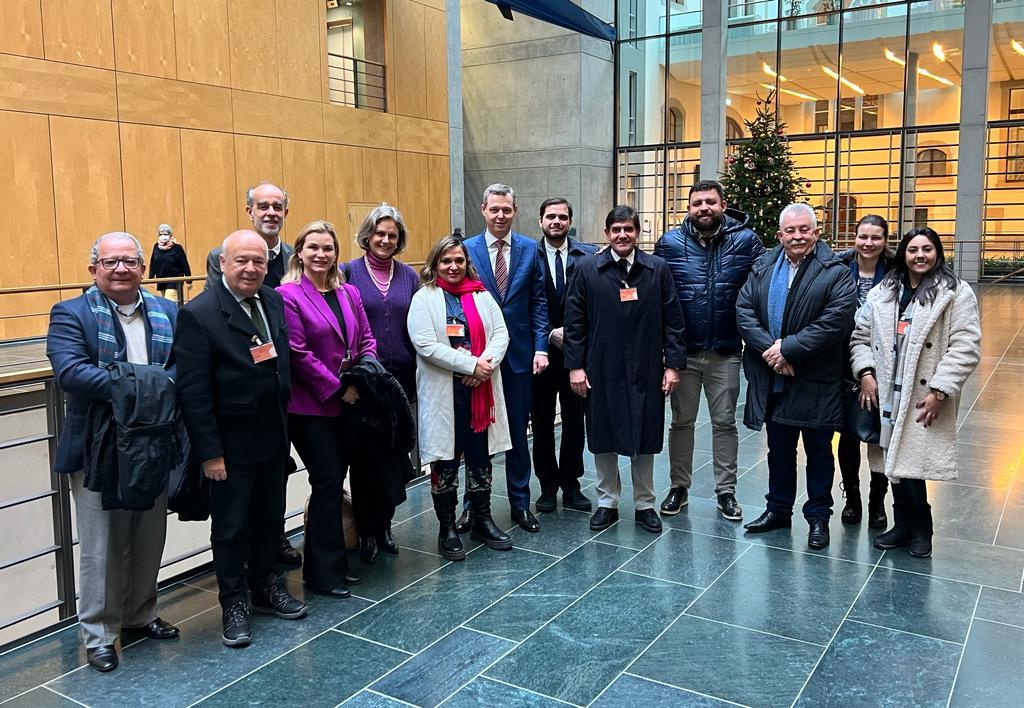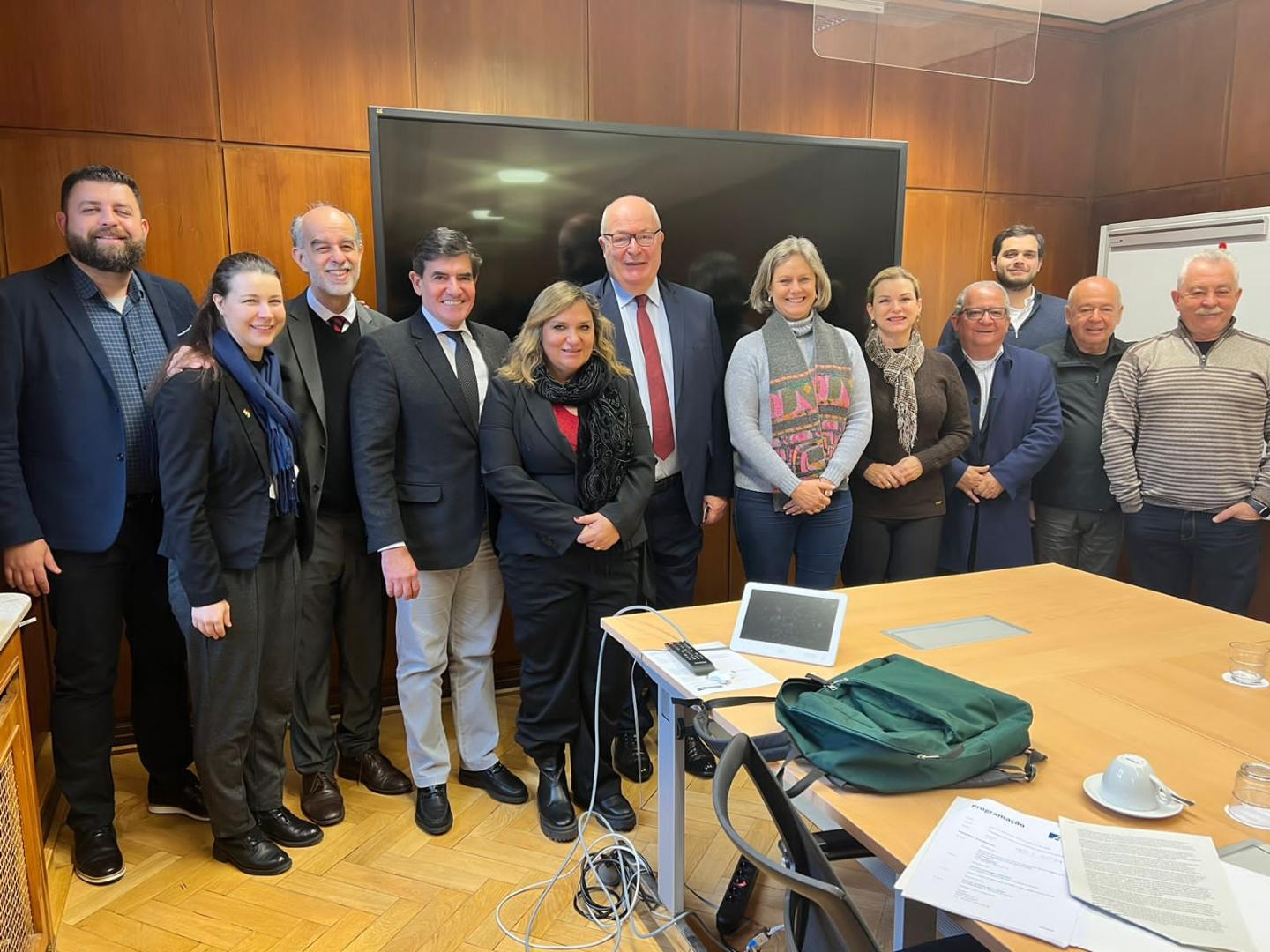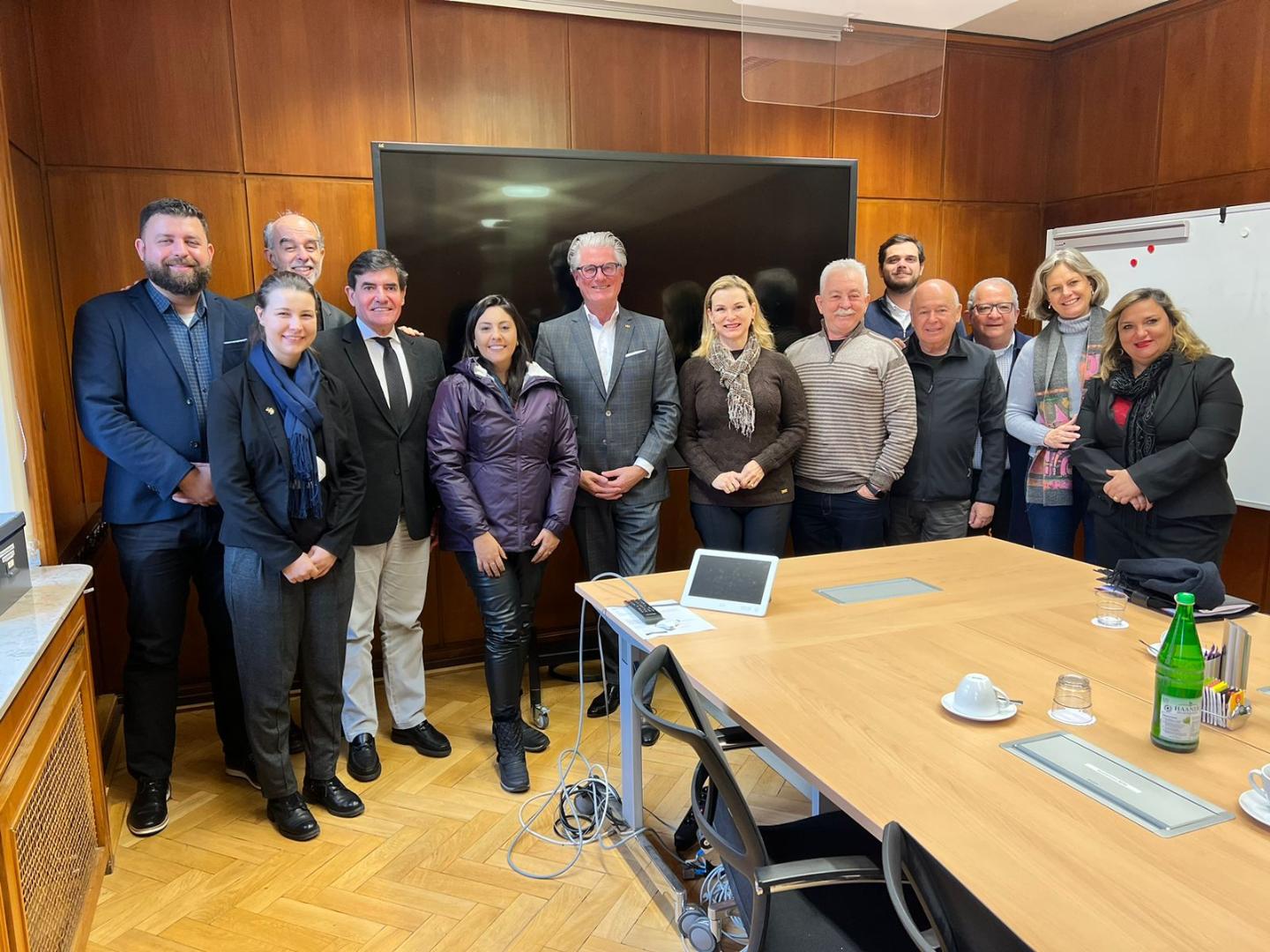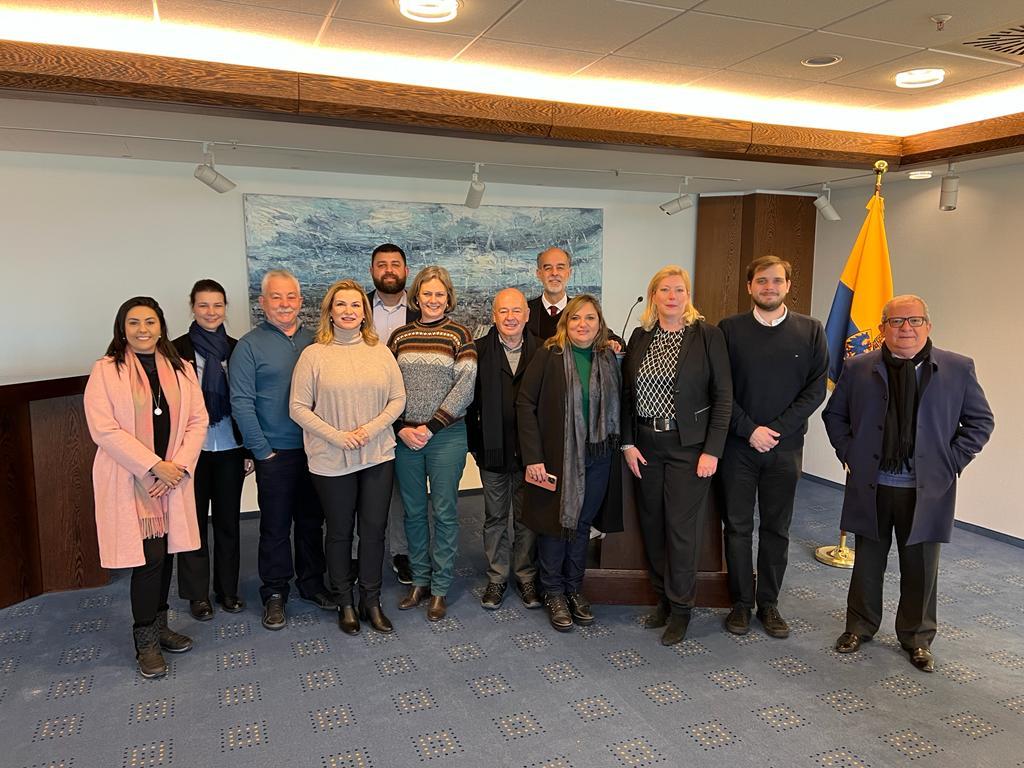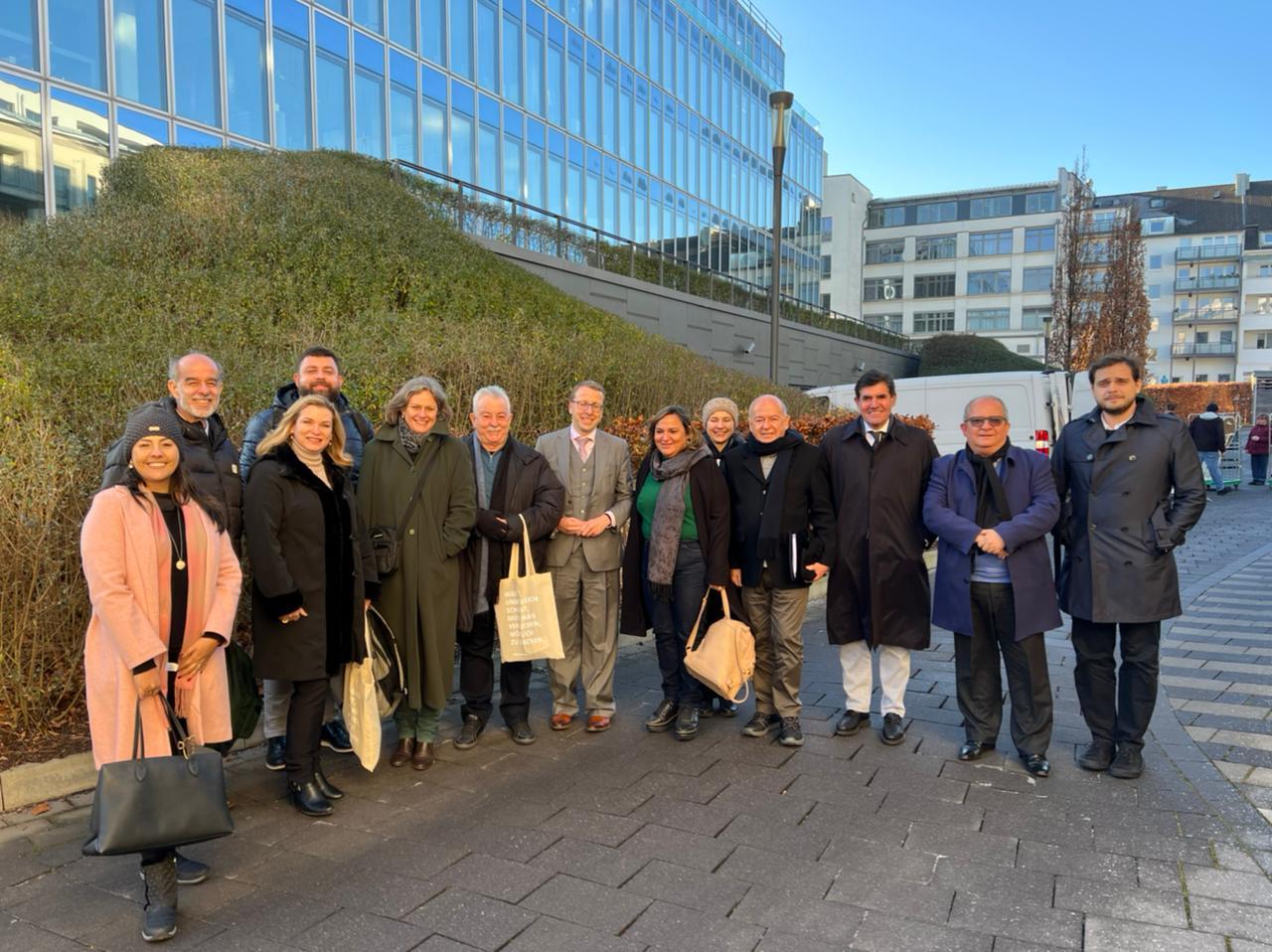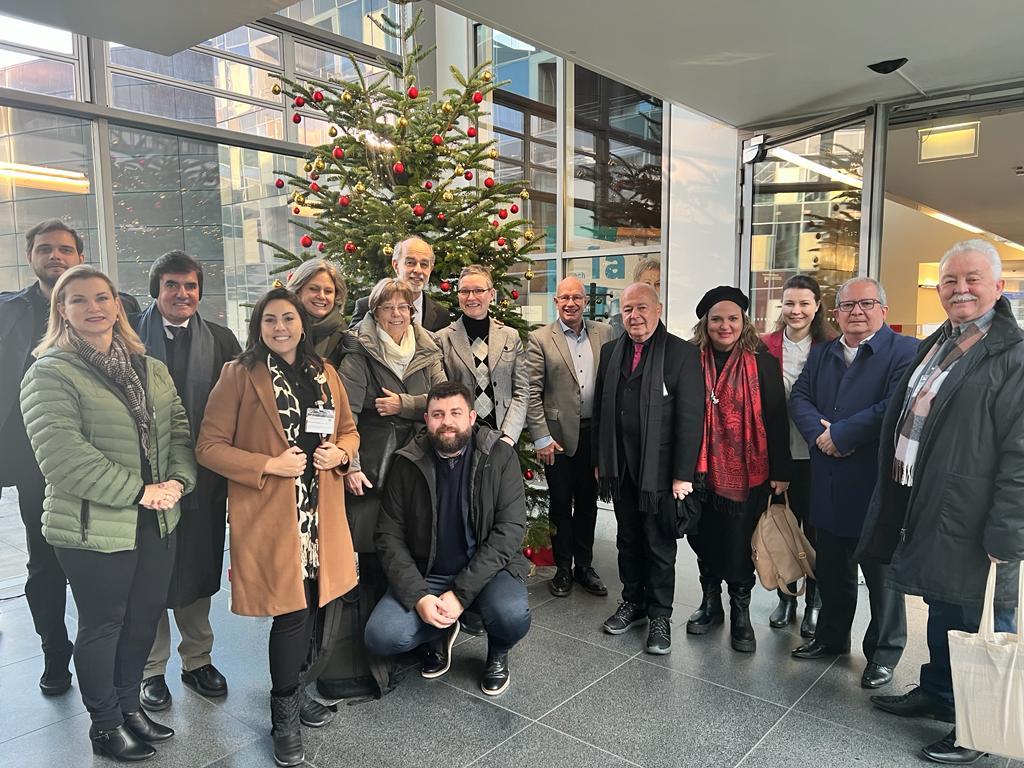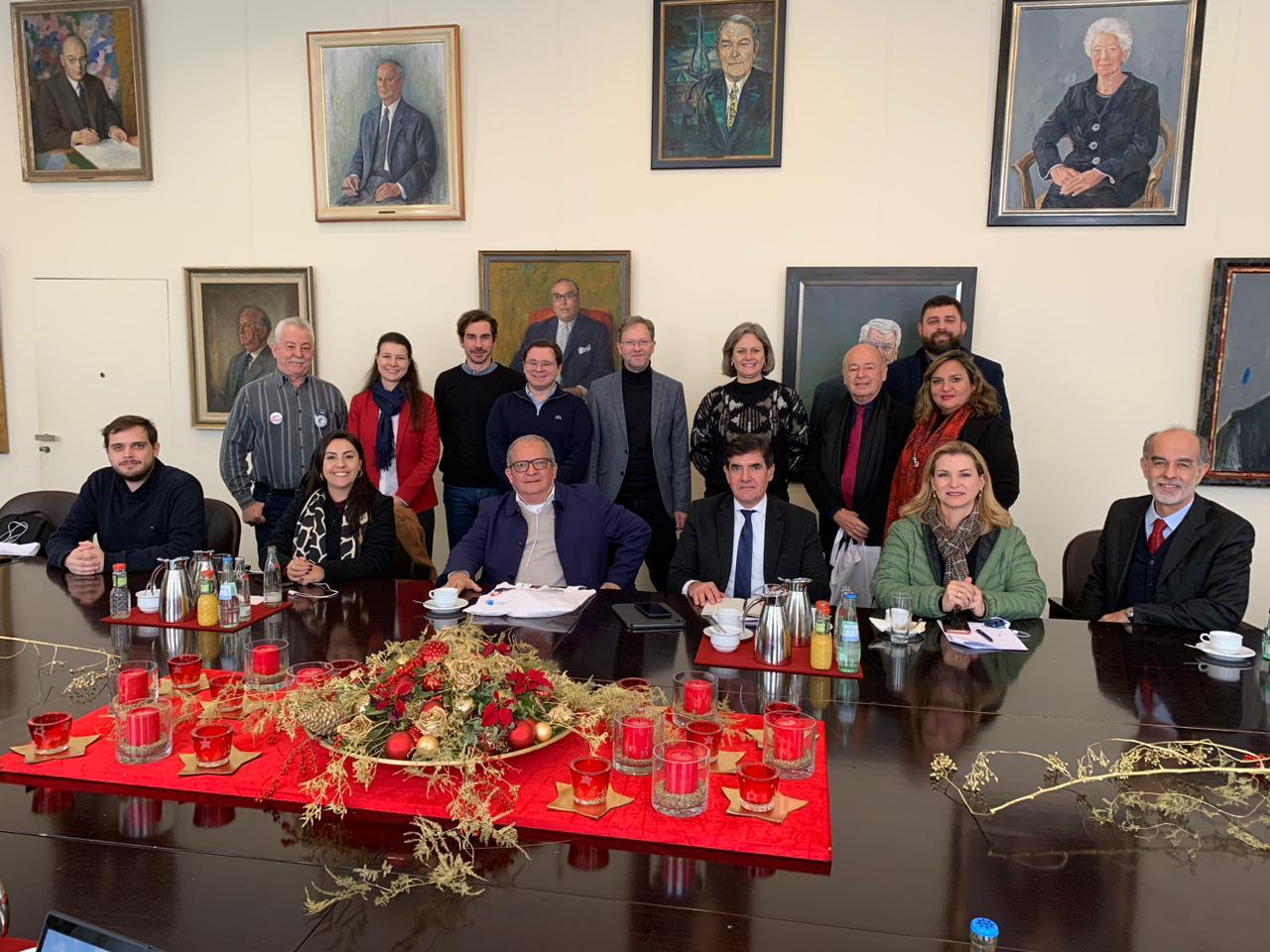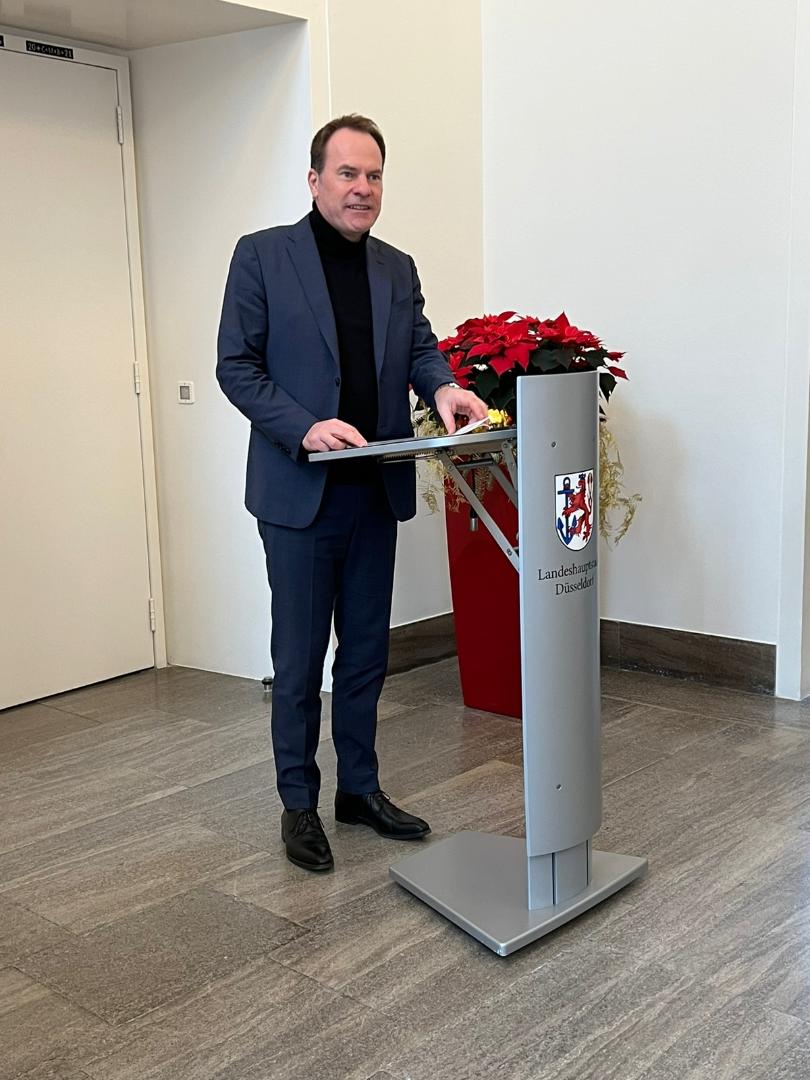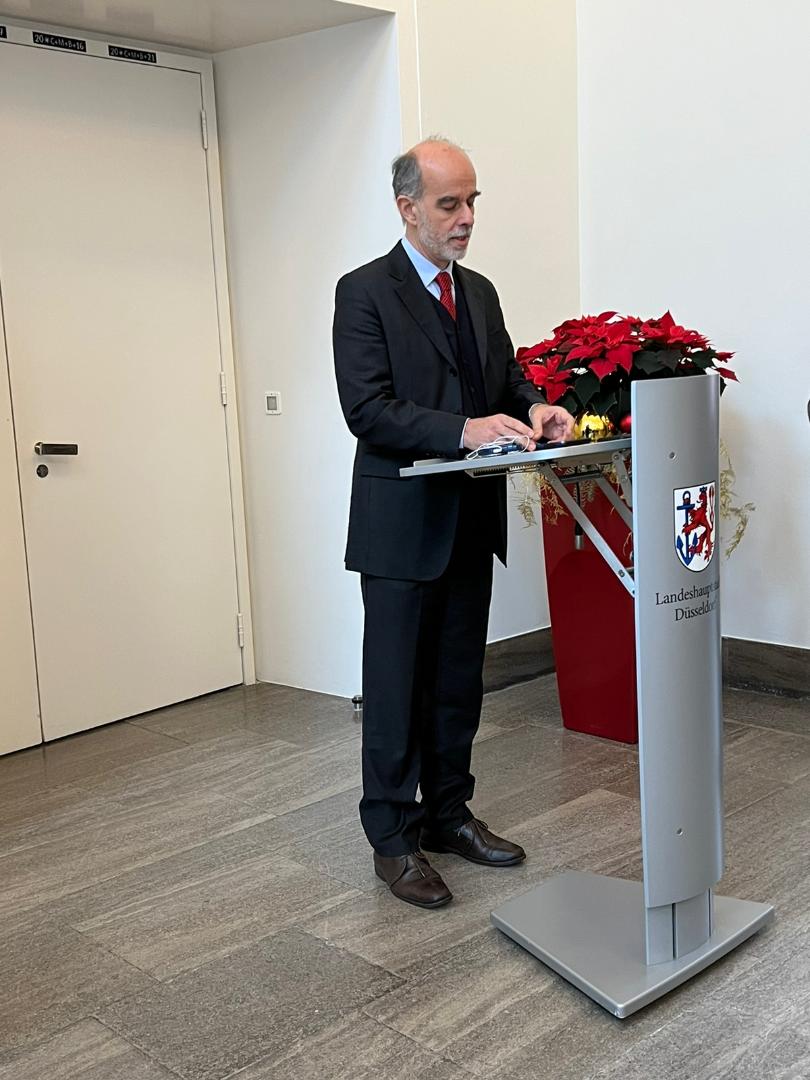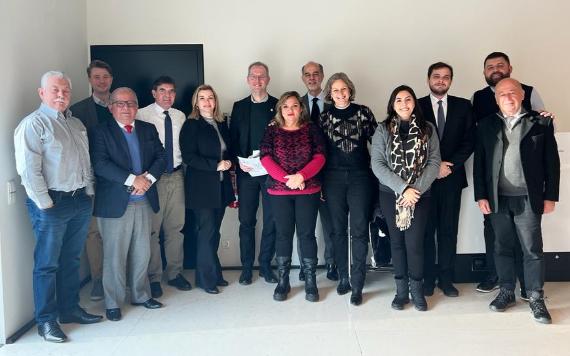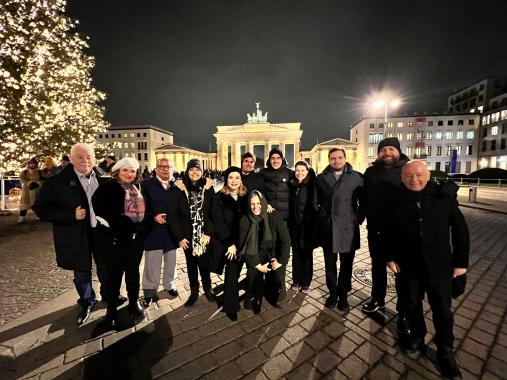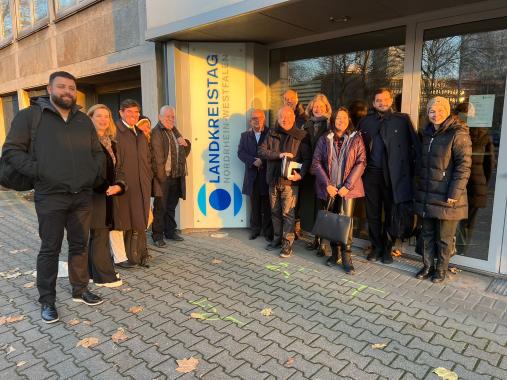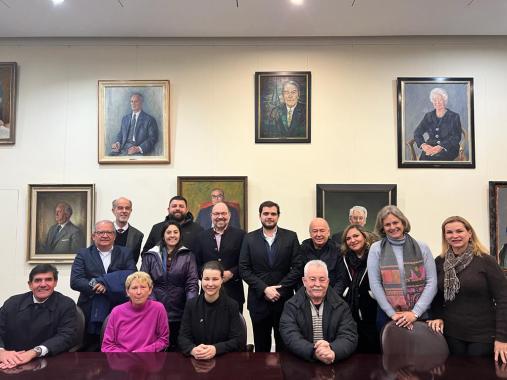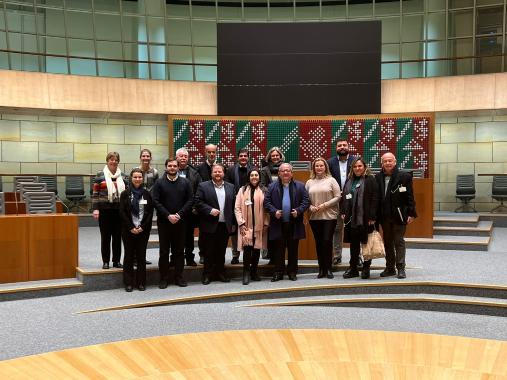The one-week visit took the group to Berlin and North Rhine-Westphalia. There, talks were held with the heads of various departments of the KAS as well as with the CDU's Local Politics Association (Kommunalpolitische Vereinigung, KPV). Furthermore, appointments were made with the German-Brazilian parliamentary group of the Bundestag as well as with the Landtag of Berlin and the Landkreistag of North Rhine-Westphalia. The program also included a visit to the Ruhr region and the Essen public utility company (Stadtwerk). In addition, discussions took place on health policy, digitalization, education, and environmental protection. The First Mayor of Essen, Julia Jacob, and the Head Mayor of Düsseldorf, Dr. Stephan Keller, received their counterparts in the respective city halls. The delegation was accompanied by members of the KAS project partner Oficina Municipal, a Brazilian educational organization for local politicians and interested citizens, the tourism secretary of the city of Rio de Janeiro, and a deputy head of KAS Brazil.
The talks focused on the challenges faced by municipalities in federal systems such as Germany and Brazil. These include cross-municipal cooperation on fundamental issues such as transportation, water and energy supply, and waste management, but also questions of financing government projects and the relationship of cities and municipalities to the federal states and the federal government. The differences between presidential and parliamentary democracies became clear. For example, municipalities in Germany have more institutional access to higher levels of government, whereas Brazilian municipalities often rely on the support of state and federal deputies. Moreover, the concept of counties (Landkreise) does not exist in Brazil. The principles of local self-government, subsidiarity, and convexity came up several times. In the area of digitalization, it turned out that Brazil is already very advanced in the digitalisation of administrative procedures, advising citizens with the help of artificial intelligence, the expansion of 5G networks, facial recognition through surveillance cameras, electronic means of payment, as well as the management of health records and medication stocks. In terms of health policy, Germany and Brazil share the challenge of combating the psychosocial and economic consequences of the pandemic, the spread of diseases, and drug use. In the field of environmental policy, both countries are concerned with the preservation of biodiversity and species diversity. Progress in these areas can be seen in the respective local sustainability reports and measures for environmental protection, sustainable transport, and education initiatives. During the exchange on education policy in Germany, the differences between the tripartite school system (dreigliedriges Schulsystem) and teacher education and training became clear compared to Brazil, where there are comprehensive schools and the majority of students attend private schools. Both countries have participated in the PISA study in the past to measure student performance and would have to face challenges such as distance learning and dropout prevention in the context of the Covid19 pandemic. Another important topic was energy supply through renewable sources. Current developments in the field of solar energy, but also wind and hydro power and green hydrogen, as well as the cooperation potentials of both countries in this field, were discussed. The trip ended with an evaluation meeting. Here, the increase in knowledge of all participants was discussed, especially with regard to intercultural differences and the mutual understanding of municipal policy challenges of the 21st century.
Topics
Municipalities in (demographic) change – Strategies to reduce regional imbalances
Tools for ‘smart’ urban development: Urban Digital Twins
There is still a gap between the federal states and municipalities
Municipal Information Security and Resilience
Gründungstreffen "Expertenkreis Kommunalpolitik"




